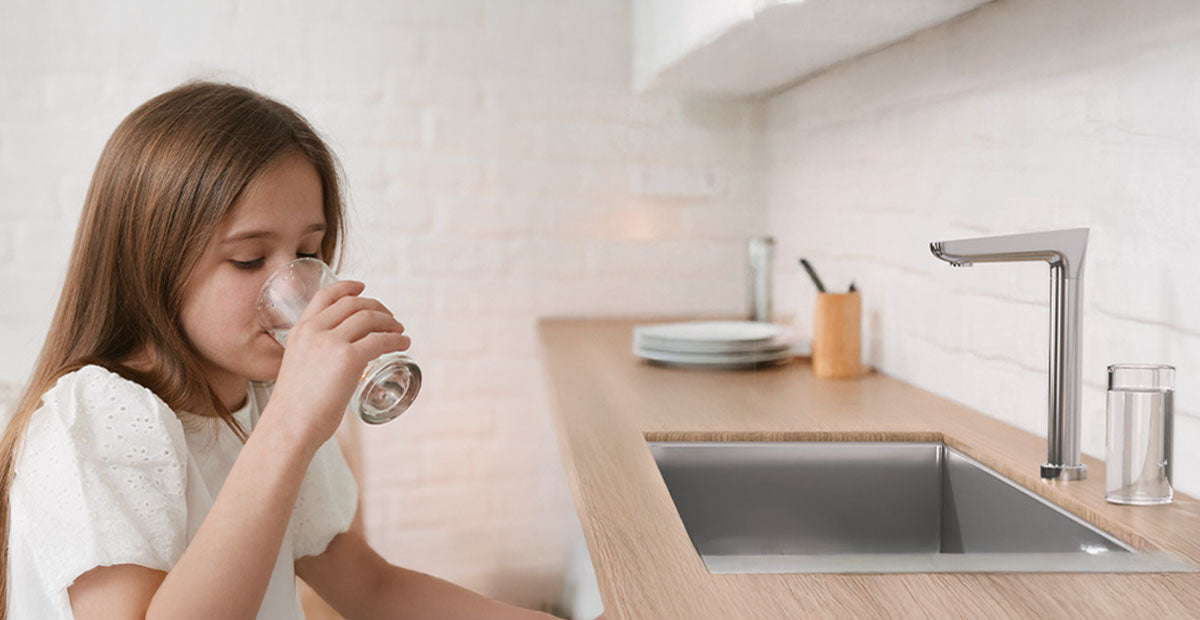Article: Tank vs. Tankless Water Heaters: What is the Best Choice for You?

Tank vs. Tankless Water Heaters: What is the Best Choice for You?

In the U.S., choosing the right water heater for a household is a hotly debated topic. When consumers walk into home improvement stores and face the two mainstream options—tank and tankless water heaters—they often feel overwhelmed. Which type better suits their family's needs? Today, we will compare these systems head-to-head, focusing on energy efficiency, space savings, convenience, and the standout advantages of tankless models to help you make an informed decision.
I. Key Differences: How They Work, Space Needs, and User Experience
(1) How They Operate: On-Demand Heating vs. Constant Reheating
Tank water heaters act like hot water warehouses, storing 40-80 gallons of preheated water. To ensure availability, they continuously reheat and insulate the stored water. However, this process leads to significant energy waste due to standby heat loss through the tank.
Tankless water heaters, on the other hand, function as “instant hot water factories.” When you turn on the tap, cold water flows through a high-powered heating element (gas burner or electric coil) and emerges as hot water within seconds. Since they only activate during use, tankless models are 30-50% more energy-efficient by eliminating standby losses.
(2) Space Requirements: Bulky vs. Compact
For small homes or open-concept spaces, size matters. Tank water heaters are massive cylinders often 24 inches in diameter and 59 inches tall requiring dedicated floor space in basements, garages, or utility rooms. Their weight also demands reinforced flooring.
Tankless units are game-changers for space-conscious households. Roughly the size of a carry-on suitcase, these wall-mounted devices fit neatly in closets, under sinks, or even outdoors. Their compact design frees up square footage for storage or other uses.
(3) User Experience: Waiting Game vs. Instant Gratification
Tank heaters deliver pre-stored hot water, but once the tank empties (e.g., during back-to-back showers), you will wait 30+ minutes for a refill. This limitation frustrates larger families or homes with simultaneous hot water needs.
Tankless models provide endless hot water on demand. After a brief 5-second warm-up, users enjoy a steady stream at their desired temperature. No more mid-shower cold surprises, even if the dishwasher and washing machine are running.
II. Why Tankless Shines: Energy Savings, Eco-Friendliness, and Smart Convenience
(1) Long-Term Savings: Cut Energy Bills by 24%-34%
According to the U.S. Department of Energy, tankless water heaters slash annual energy costs by $100+ compared to tank models. By heating water only when needed, they eliminate the energy leak of maintaining a full tank 24/7. Over their 20-year lifespan (vs. 8-12 years for tanks), these savings add up significantly-especially for families with irregular schedules or low daytime usage.
(2) Greener Choice: Lower Emissions, Less Waste
Tankless systems align with eco-conscious living. Gas models reduce carbon footprints, while electric versions minimize energy consumption. Their longer lifespan and lack of a corrosion-prone tank also mean fewer units end up in landfills. Bonus: No annual tank flushing to remove sediment, saving water and avoiding chemical cleaners.
(3) Precision Temperature Control + Healthier Water
Advanced models like Mizudo offer ±1℃ precision, eliminating the frustrating hot-cold swings of traditional heaters. Tankless units also avoid the bacteria growth and mineral buildup common in stagnant tank water, delivering cleaner water for showers, cooking, and sensitive skin.
(4) Flexible Fuel Options + Zoning Potential
Tankless heaters work with natural gas, propane, or electricity, adapting to regional energy policies and infrastructure. Homeowners can even install multiple point-of-use units (e.g., a small electric heater under the kitchen sink and a gas-powered system for bathrooms) to optimize efficiency.
III. Tank Water Heater Drawbacks: Hidden Costs and Hassles
(1) Energy Drain
Standby heat loss accounts for 20–30% higher annual energy costs versus tankless. If your household rarely empties the tank, you‘re literally paying to reheat unused water.
(2) Space Hog
Finding room for a 60-gallon tank can be a headache in tight spaces. Retrofitting older homes may require costly structural upgrades to support its weight.
(3) Maintenance Burden
Tanks accumulate sediment, requiring annual flushing to prevent efficiency loss and premature failure. Neglect this, and you’ll face repair bills or early replacement.
(4) Supply Shortages
Simultaneous showers, laundry, and dishwashing? Prepare for lukewarm disappointments. Tanks can‘t magically refill faster than their recovery rate (typically 30–50 gallons per hour).
IV. Choosing What’s Right for You
Young Families & Eco-Conscious Buyers
Tankless models match fast-paced, sustainable lifestyles with instant hot water, space savings, and lower emissions.
Large Homes & Multi-Bath Households
Opt for high-capacity gas tankless units (9–11 GPM) to handle simultaneous demands. Calculate your peak usage (e.g., two showers + dishwasher) to size the system correctly.
Budget-Minded Shoppers
While tank heaters cost less upfront ($300-$600 vs. $1,000+ for tankless), their shorter lifespan and higher operating costs make tankless a smarter long-term investment. Federal/state rebates for energy-efficient models can further offset initial costs.
In summary, tankless water heaters aren't just appliances—they're a modern, efficient upgrade that pays dividends in comfort, savings, and sustainability. By understanding your households needs, you can confidently choose the system that keeps the hot water flowing without wasting energy or space.



